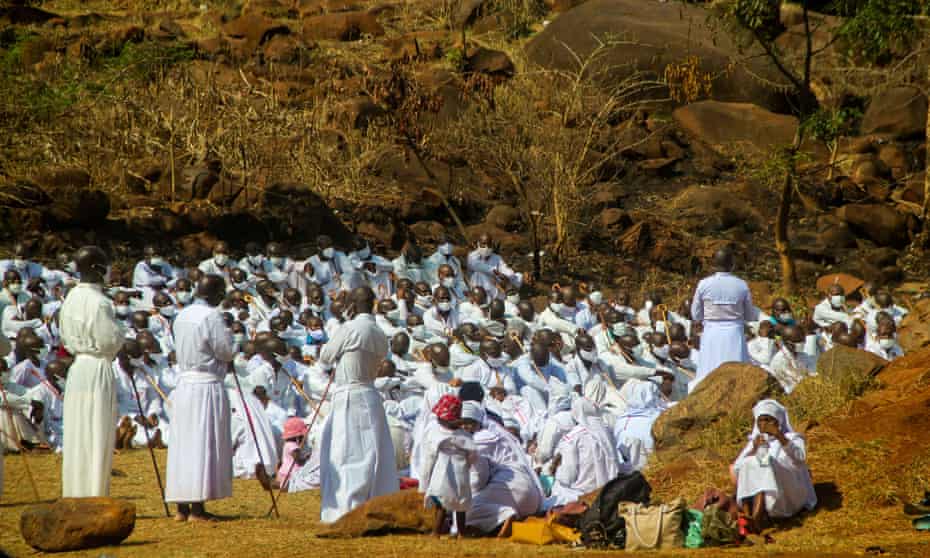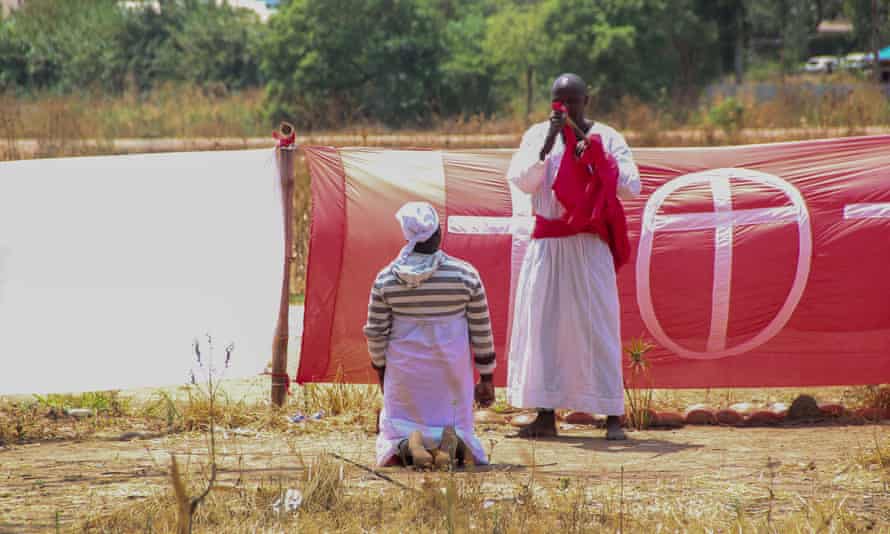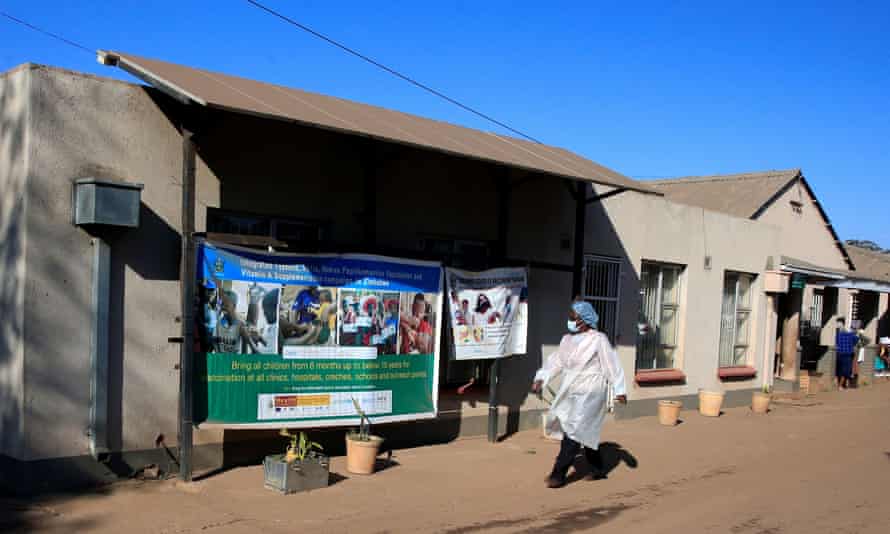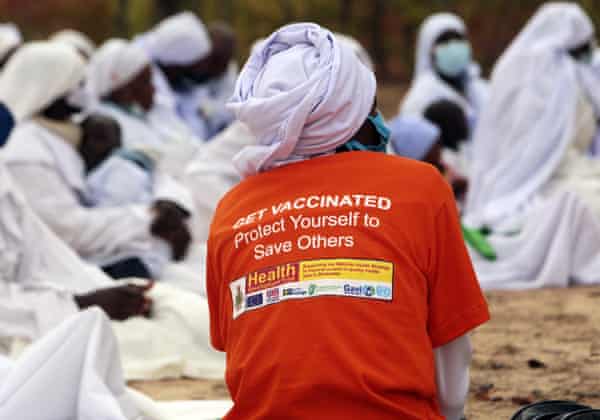
Hymnal melodies reverberate around the hillside in Kuwadzana, a Harare suburb. On a blisteringly hot Saturday, members of the Apostolic church, dressed in white, hum and sing together.
Songs, long prayers and a little Bible reading punctuate the outdoor service. It’s a spectacle for passersby.
Since the Zimbabwean government partly reopened church gatherings in August, Apostolic members, known for their open-air worship, can be seen every weekend around the capital.
The government has asked religious groups to endorse the Covid-19 vaccine. The Catholic church, evangelical and adventist groups have done so.
But with a tradition of not seeking or trusting medical help, some of the “white garment” churches are refusing to encourage congregations to get vaccinated.
With millions of followers across southern Africa, the church’s stance could undermine Zimbabwe’s attempts to vaccinate 60% of the population by December.
“We believe in God, and science is entirely subject to God’s will,” says Gramaridge Musendekwa, of the Vadzidzi Apostolic church.
“I grew up on my parents’ prayers and I am passing it down to my children. My family will not take the vaccine because we are protected by prayers,” says Musendekwa, 38.
“I believe we should not be forced to get vaccinated. For us who grew up without medicine, vaccinations are an insult to our faith and religion. Surely the authorities can achieve whatever they want to do without involving us.”

The Apostolic position threatens the success of vaccination programmes in southern Africa, according to research published in the Journal of Religion and Health in 2017, which linked it directly to the rise of measles outbreaks in 2009 to 2010.
More than 85% of Zimbabweans identify as Christian, and 37% belong to the Apostolic church.
It is 2pm on a Saturday and no one at St Peters Apostolic church in Harare is wearing a government-mandated face mask.
After spending hours at a shrine, decorated with red and white flags, Miriam Mushayabasa, 34, a mother-of-three, believes she does not need a vaccine.
“Our preacher gave us a clear instruction that if we use these little stones and holy water he prayed for, nothing will happen to our families. Since Covid-19 began last March, my family and I have never suffered from this disease, we are as strong as ever,” says Mushayabasa.

“My children are strong, so I have no cause to fear. I have always believed in prayers and this is how I choose to go through this pandemic.”
While the government mandates only the vaccinated can attend religious services, it is tough to enforce in the Apostolic churches, who meet outdoors on hilltops and in fields.
Zimbabwe’s vaccination programme has inoculated 15% of the population since it began in February. It is one of 15 African countries to have achieved the World Health Organization target of 10% of citizens by September.
Regular vaccine consignments are arriving from China, but the government says misinformation and general mistrust have slowed the vaccination programme.

Prosper Chonzi, Harare’s health services director, says the authorities are running campaigns on the benefits of vaccination to increase take-up.
“Our efforts to continue engaging them [the church] are there, and now there is more literature. It was more people getting sceptical about the vaccine. There is more knowledge about the vaccine.”
Aaron Chakaipa, 40, reflecting the fears of his fellow Apostolic members, says, “I heard that if you get vaccinated, you will not be fertile any more. I am really scared to take it.
“I believe an individual should make a personal decision and not be cajoled into taking the vaccination. Telling people to stay away from church if they are not vaccinated is the same as forcing the vaccination, which is not right.”
However, Andby Makururu, bishop and founder of the Johane Fifth of Africa Apostolic church in the eastern Manicaland province, is encouraging his members to get vaccinated.
“We are transforming the indigenous church to suit global standards. Johane the Fifth of Africa has been on a vaccination drive. In all our preachings, we encourage members to get vaccinations because the Holy Spirit does not cure all these diseases. So I am encouraging the Apostolic sect to go to hospitals and get treatment, I also get treatment and regular checkups,” he says.
He says sects who deny the benefits of vaccines are out of touch.
“Our children are getting vaccinated. Those that are still behind are lagging but we are moving with the times,” Makururu says.


